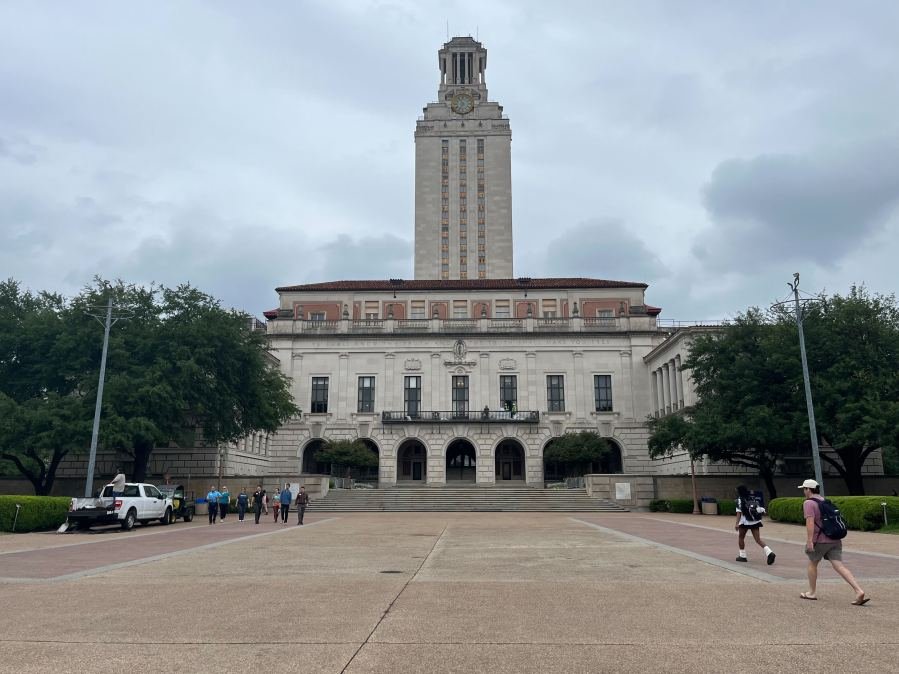AUSTIN (Nexstar) — Undocumented students at Texas’ public universities will lose the ability to receive in-state tuition, a federal judge ruled Wednesday in an uncontested settlement.
The change comes after the U.S. Department of Justice sued the state of Texas for a 2001 law, known as the Texas Dream Act, which allowed those students to receive in-state tuition if they met certain qualifications. The lawsuit alleged that the Dream Act violated federal law, and Texas Attorney General Ken Paxton released a statement Wednesday announcing his office would not contest the suit, causing the law to be repealed through a default judgment.
“Ending this discriminatory and un-American provision is a major victory for Texas,” Paxton wrote.
The Texas Legislature considered bills during this year’s session to repeal the Dream Act, but it failed to pass. The initial Dream Act had bipartisan support and was signed into law by Republican former Gov. Rick Perry.
The move by the Trump administration and agreement from Paxton, a Republican, represents a method of removing enforcement of a law without the approval of the legislature. Josh Blackman, associate professor of law at South Texas College of Law, said that while the strategy is uncommon, it is not unheard of.
“For example, an environmental group will sue a Democratic [Environmental Protection Agency], and the EPA says, ‘Oh, we agree with you. We’ll settle the litigation,'” Blackman said. “It’s not as common [for] conservatives, but I guess we’re seeing it now.”
Blackman added that the settlement happened very quickly — just hours after the suit was filed.
The decision is effectively final, Blackman said. He said that a relevant party could have signed onto the suit after it was filed, but because of how quickly it was decided, no group did so.
“There was no intervention here. It sort of happened very quickly,” Blackman said. “I don’t see how…some other group might intervene. I think the case is over.”
Barbara Hines, an immigration law professor who helped craft the initial Texas Dream Act, did not share Blackman’s assessment that it was the end of the road for the law, however. She said that in previous lawsuits related to the Dream Act or Deferred Action for Childhood Arrivals program, other parties have been allowed to intervene. In this case, it is not immediately clear if another party could still intervene given that the case was settled.
The legal basis for challenging the Texas Dream Act is contained in Section 505 of the Illegal Immigration Reform and Immigrant Responsibility Act of 1996. The act states that noncitizens cannot receive higher education benefits, based on residency, that are not afforded to all U.S. citizens. Because in-state tuition for Texas universities is not available to all U.S. citizens — only Texas residents — the DOJ argued that Texas was in violation of federal law.
But Hines said that the workaround to prevent violating federal law was that the qualification for in-state tuition was based on other factors besides simply residing in Texas.
“They had to graduate from a Texas high school, and they had to make efforts to obtain permanent residency in Texas…under the immigration laws,” Hines said.
Hines said, though she did not provide specific evidence, that she believes the Trump administration and state officials colluded to overturn the law without the approval of the legislature after the attempt to repeal the Texas Dream Act died during session this year. The initial law in 2001, she said, was passed by an overwhelming bipartisan majority.
“It’s been around for 25 years, and the effort in this legislature failed, and that shows that the majority of elected officials, that are people that are elected by the residents of Texas, thought that this bill was a good thing for Texas,” Hines said.
Regardless, she took issue with the manner in which the case was decided. She disapproved of both that the case was filed intentionally in a conservative court, and that Paxton did not defend existing state law and immediately settled.
“Generally, the Attorney General of a state is entrusted with defending the laws of a state not signing a pro forma consent decree hours after you’re sued, saying that a state law is unconstitutional,” Hines said.
Undocumented students who wish to attend Texas public universities will now see a significant cost increase. The in-state cost of tuition and fees at the University of Texas at Austin, previously available to undocumented students, is $11,768, according to U.S. News and World Report. But the cost of attendance of an out-of-state student is $42,778 — nearly four times higher.
Hines said that the law was initially passed because it provided the opportunity for higher education to immigrants who may not be able to access it otherwise. The absence of this law in Texas does not mean immigrants will choose to stay in their home country, Hines said. She said it will merely lead to a less-educated Texas population.
“People are coming to this country because they’re looking for better economic opportunities. They’re fleeing violence, they’re reuniting with their families,” Hines said. “The idea that taking this benefit away is going to make you think I’m going to stay in my home country when there’s a violent civil war is ridiculous. It just means that we’ll have an under educated population in Texas.”
Blackman said that he does agree with the decision, but that the political environment which once allowed this bill to receive bipartisan approval is no longer the reality in Texas.
“I think states have been flouting federal law on this issue. For decades, everyone kind of just looked the other way,” Blackman said. “This is a Perry-era law, and I think there’s actually been a shift in Republican politics, really a shift in Texas politics on this issue over the last two decades.”
